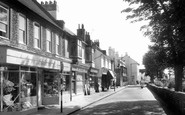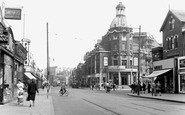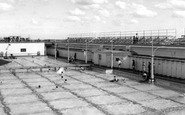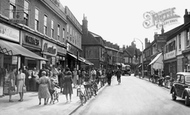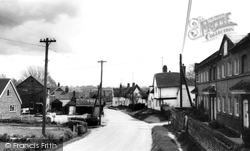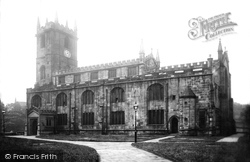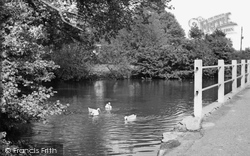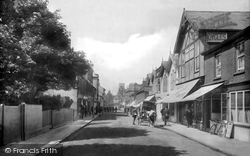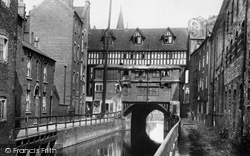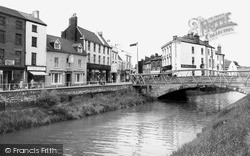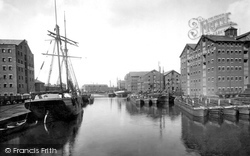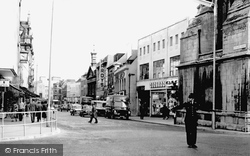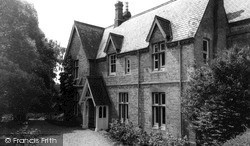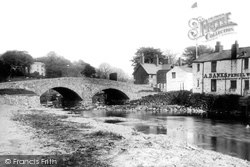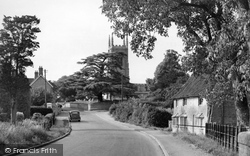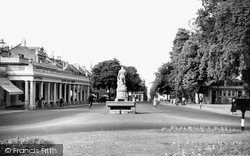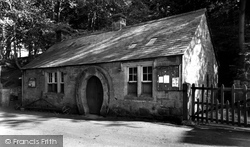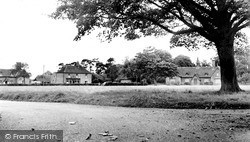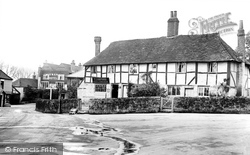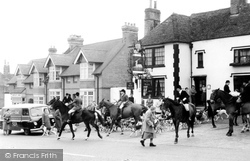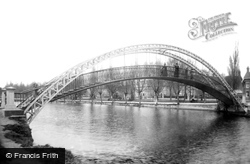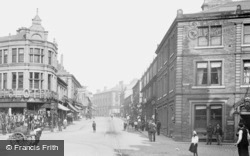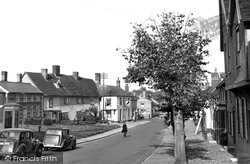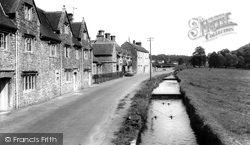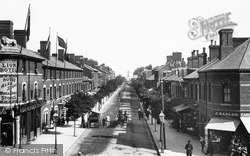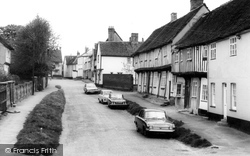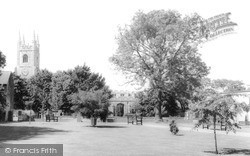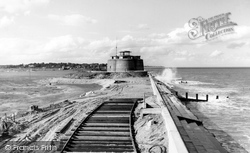Places
3 places found.
Those places high-lighted have photos. All locations may have maps, books and memories.
Photos
63 photos found. Showing results 1,101 to 63.
Maps
12 maps found.
Books
1 books found. Showing results 1,321 to 1.
Memories
7,556 memories found. Showing results 551 to 560.
Shops And Shopkeepers In East Street ....St Marys Hall..
I remember the pram/toy shop on the corner, there was also a fabric shop - I think it was where Famished sandwich bar was (can't remember what it is called now..) I could buy a piece of ...Read more
A memory of Shoreham-By-Sea in 1968 by
New Back Row
I used to live at 458 New Back Row and remember the Coulsons from 456, especially Eddie who was my age (I think). I was devastated when they moved away, although Eddie was probably relieved - I have vague memories of stabbing his hand ...Read more
A memory of Wingate in 1963 by
My First 21 Years
I was born on 5th July 1948, we lived in one of the houses behind the Wheatsheaf hotel. Our neighbours there were the Wilcocks and the Browns. My Dad, worked as a driver for a furniture company and a coalman and I remember he ...Read more
A memory of Queensbury by
Happy Days During School Summer Holidays
I can always remember the long hot summer days swiming in the burn at the head of the loch with my twin brother Johnnie, Hugh Macintyre, David Clarke and others; we also used to go up the hill to the ...Read more
A memory of Garelochhead in 1956 by
Happy Days
I was born at 'Barford View' in Churt in 1952 and lived there until I was 13. I am one of eight children of the Lindsey-Clark family, my brothers and one of my sisters still live in the area. I have such wonderful memories of Churt - cricket ...Read more
A memory of Churt in 1952 by
Lovely Childhood
I was born at St Hilliers, Carlshalton and lived in Pelham Road for the first 5 years. I started school at 4 in Pelham Road School. Then we moved to Mayfield Road and I went to Dundonald School. We moved away in 1961 in the London ...Read more
A memory of Wimbledon in 1953 by
Family History In Belvedere
I have two separate enquiries for my family history research in Upper and Lower Belvedere. In Upper Belvedere there was a sweet and paper shop which also sold toys called Derrett & Dorman's. I believe that I have a ...Read more
A memory of Belvedere by
Westcliff Baths
I learned to swim here in the 1950s. The water was freezing, every day there was a notice showing the supposed water temperature, taken with a warmed thermometer I think! We used to queue up at the beginning of the swimming ...Read more
A memory of Southend-on-Sea in 1955 by
That Old Shoe Shop
The old shoe shop was called "Caiger's Boot Store" and was run by my two elderly great aunts, Ruth & Kizz (Kezia) untill 1969. Their father, Frederick Caiger who married the previous owner's daughter, owned and ran the shop ...Read more
A memory of Wokingham by
The Bear Inn
My name used to be Marilyn Jesse and my memories of stock back in the late 60's early 70's are delightful. Since my boyfriend of the time lived next door to the Bear Inn, the pub became a bit like home from home. Many weekends were spent ...Read more
A memory of Stock in 1969 by
Captions
2,471 captions found. Showing results 1,321 to 1,344.
The street is now a cul-de-sac since the opening of the by- pass in the 1980s. The imposing red brick almshouses (right), built by Edward Colman in 1731, were modernised in 1966.
A hint of the heavily-wooded banks of the Brun can be seen on the left of this picture.
Haddenham was one of the chief breeding areas for the Aylesbury duck; its network of streams and ponds was of immense value to this industry, even if the village was famously foul-smellling in a hot summer
Walton-le-Soken was an agricultural and beachcombing parish that expanded into Walton-on-the-Naze in the 1820s. Its early visitors were upper-class people who had summer homes here.
The High Bridge timber-framed buildings had got into a deplorable state by the 20th century, and were extensively restored and rebuilt in 1900 by William Watkins, who also added the three dormer windows
Spalding's townscape is 'made' by the River Welland, which bisects the town. There are roads along each bank and houses face the river, giving it a slightly Dutch feel.
The high banks along many stretches of this great river confirm its habit of flooding.
A Gloucestershire Constabulary police officer directs traffic at the cross. He is facing Westgate Street. Dorothy Perkins store is immediately behind him.
Located at the corner of Stockerston Road and South Backway, West Bank was built in 1866 by Howard Candler, 'a small, energetic mathematician', who always refused to have more than six boys boarding.
Here we see the bridge over the River Greta in the busy little market town of Keswick in the northern Lakes.
Heading south towards Bourne, the route diverts north-east of the town to Edenham, a delightful village on the east bank of the winding East Glen River, whose church has many remarkable monuments to the
The gardens are on the right of the picture; together with the Imperial Gardens, they testify to Cheltenham's love of flowers. The rotunda (now occupied by a bank) can be seen on the left.
Just six miles from the Borde, the village of Ford sits on gently rising ground on the right bank of the Till.
Revesby is an estate village, and the Estate Office on is the nearby A153 main road. The village was laid out in the 1850s around a huge green.
The town-village grew up where the Roman Stane Street crossed the River Arun.
The 1890s terrace with its four gabled full-height bay windows steps down the hill; the left-hand one on the corner of Outwood Lane is now no longer a Barclays Bank, but the offices of financial consultants
This is downstream beyond the 1813 Ouse bridge to the Embankment area, with a view of the parks and gardens mostly laid out during Joshua Hawkins's mayoralty in the 1880s.
The Cash Clothing building (left) later became Lloyds Bank.
On the right are Rayner's, an electrical shop, and Thomas the ironmonger. To the right, the long building is the former 15th-century Guildhall.
The village stands on the north bank of Doulting Water, also known as the River Sheppey. Thus the name of the village may also derive from the words 'dun', meaning 'a hill', and 'dwr', 'water'.
At the west end of Lumley Road there were a few shops in 1899, but the view is utterly transformed now from Roman Bank, a reference to the old Roman sea wall.
The weavers' cottages (right) are reminiscent of Kersey and Lavenham. They were restored in about 1960, when seven dwellings were reduced to three.
Following the death of the owner, the site was acquired by the town and first opened to the public in 1960.
This is the last and most northerly of just over a hundred Martello towers, built to keep Napoleon at bay. This one was constructed well after the invasion threat.
Places (3)
Photos (63)
Memories (7556)
Books (1)
Maps (12)



